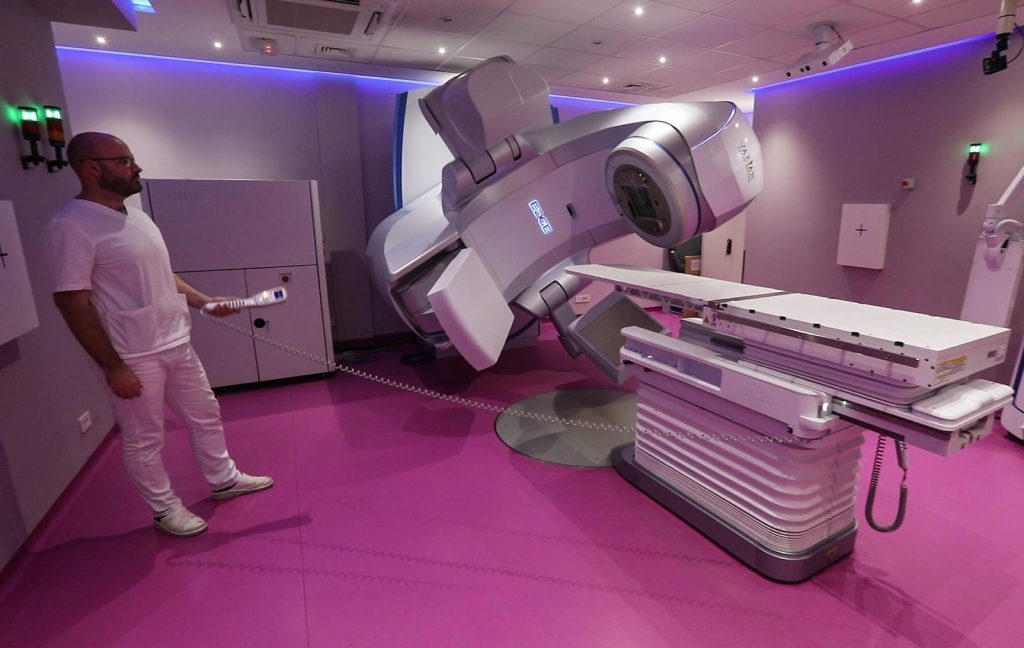Medical wonders never cease at the Radiochirurgia Special Hospital in Zagreb, as the Croatian doctors there are the only ones in the entire world to perform radiosurgical procedures under general anesthesia, which in just one procedure, destroy cancerous tumors of the lungs, pancreas, and prostate without irradiating the delicate surrounding tissues and organs.
As Poslovni Dnevnik writes, this type of radiosurgery procedure can be performed with a patient referral from HZZO (the Croatian Health Insurance Fund), and the hospital which carries it out cooperates with KB (Clinical Hospital) Merkur and the Faculty of Electrical Engineering and Computing. The results in the fight against cancer are incredible, as reported by HRT.
In one patient, they managed to destroy a form of cancer which causes the deaths of millions each year – an inoperable pancreatic tumor – using radiosurgical ablation.
No blood, no pain, no long recovery
“Over 50 percent of patients live longer than 24 months, and somewhere around 13 percent of them live longer than 4 years. The reactions following the procedure are spectacular. There’s no blood, no pain, no long-term recovery, and no postoperative complications. The patient comes, and otherwise it is done in one fraction that lasts for 45 minutes to an hour and a half, depending on the patient, and then the patient goes home. That means that this is actually an outpatient procedure”, said hospital director Dragan Schwarz.
During the procedure, the patient must be under general anesthesia so that the radiosurgery procedure can be performed as accurately as possible.
“The problem is that cancerous tumors move within the body, due to breathing, peristalsis and other physiological processes. When under general anesthesia, we achieve a situation in which the patient is completely motionless. The anesthesia stops them breathing and reduces peristalsis. This results in heightened safety of over 90 percent. Even according to our own experience, there’s a 98 percent chance that the treated lesion will necrotise and then be destroyed,” said Hrvoje Kaucic, head of the radiosurgery and radiotherapy department.
A special role is played by medical physicists who are in charge of ensuring that the linear accelerator accurately and precisely delivers the planned and prescribed dose of radiation.
The pancreas is the biggest challenge of all
Cooperation with colleagues from electrical engineering and computing helps them to be more precise and without the anesthesia. They detect moving organs in order to spare them during the targeted destruction of the tumor. The pancreas, they say, is the biggest challenge within the human body when it comes to this.
“It’s a challenge, but we managed through this work to carry out the procedure based on the knowledge of other organs and the mutual relationship between the organs and the pancreas, and we got a fairly precise position of the pancreas. From 80 to 90+ percent of the reliability of the position of an individual organ”, said Zdenko Kovacic, head of the Laboratory for Robotics and Intelligent Management Systems.
Experts in radiosurgery together with Croatian doctors from KB Merkur provide patients suffering from the rare cancerous Klackin’s tumor a fighting chance for a longer life.
“We’ve now created a model to start radiation with radiosurgical treatment, where a patient who is a transplant candidate and has a Klackin’s tumor receives an ablative dose. After that, we put it on the list and after that we successfully transplant it. Survival is much higher and the odds are much better – oer three years,” said Stipislav Jadrijevic, head of the Department of Abdominal Surgery at KB Merkur.
For more, make sure to check out our dedicated news section.









